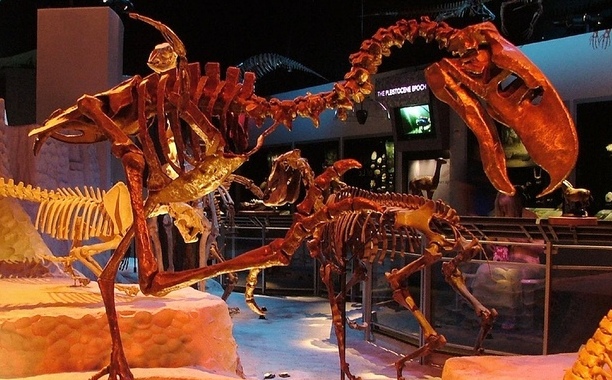Terror birds lived 3.5 billion years ago in South America stalking their prey. Study of a recently discovered skeleton reveals surprising details about their hearing and anatomy.
Researchers found the fossil in 2010 on a beach in Mar de Plata, a city in the eastern coast of Argentina. To their delight, the fossil was the most complete skeleton of a terror bird ever found with more than 90% of its bones preserved, said the study’s lead researcher, Federico Degrange according to NBC News.
The new species was named Llallawavis scagliai: “Llallawa” because it means “magnificent” in Quechua, a native language of the people in central Andes, and “avis” which means bird in Latin. They were up to 10 feet tall and inhabited South America during the Cenozoic Age. They could not fly even though they were birds.
An analysis of the L. scagliai inner ear suggests that terror birds heard low-frequency sounds which make it a fierce predator who could hear the low-pitched rumble of prey’s footsteps. According to the new findings, the terror bird also used low-frequency sounds to communicate, BBC reported.
[quote text_size=”small” author=”– Federico Degrange” author_title=”Assistant researcher of vertebrate paleontology at the Centro de Investigaciones en Ciencias de la Tierra”]
A very interesting thing is that we could reconstruct the shape of the inner ear. We are able to say that terror birds had low-frequency sensitivity – so it seems reasonable to suggest that they also produced low-frequency sounds.
[/quote]
This skill puts terror birds in good company. Other animals that can or could hear low-frequency sounds include Tyrannosaurus Rex, rhinos, crocodiles and elephants. The birds skull was more rigid than those of other birds which helped it slam prey with its beak, scientists concluded.
A few days ago Immortal News covered a story about a study that showed cannibalism in subspecies of Tyrannosaurus, Daspletosaurus. Apparently the ancient animals had to do whatever it took to survive.
What do you think about recent discoveries and the way ancient animals lived millions of years ago?
























